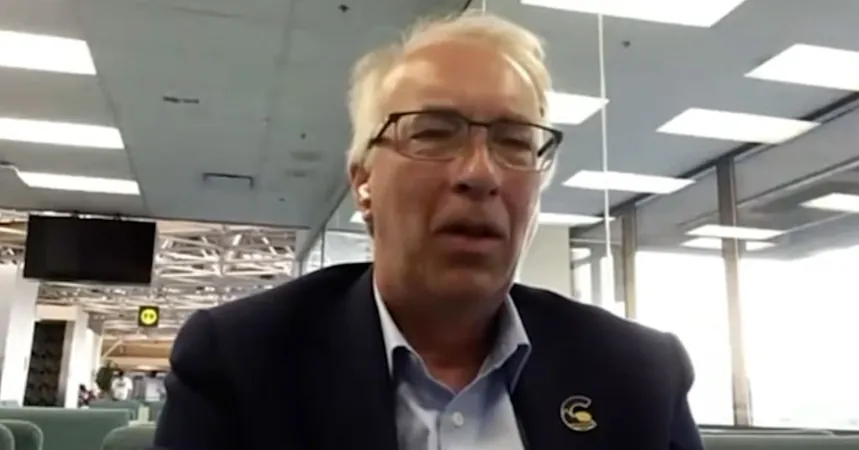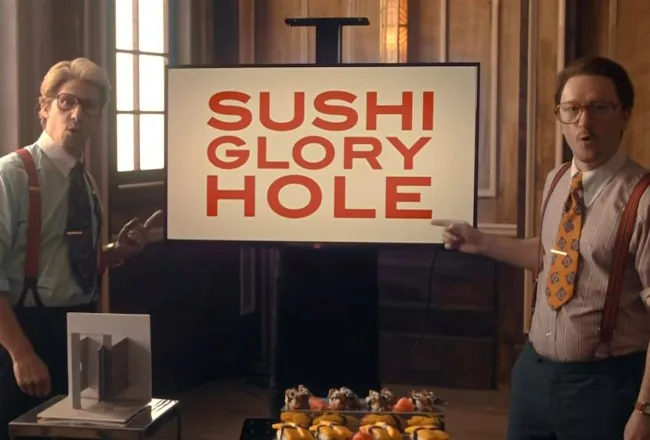
BC Conservative Leader Sparks Controversy with 'Nuremberg 2.0' Remarks on COVID Trials
2024-10-07
Author: Jacob
Introduction
In a bold statement that has reverberated across social media and news platforms, British Columbia Conservative leader John Rustad has assured anti-vaccine activists that the province might consider participating in legal proceedings reminiscent of the infamous Nuremberg Trials. These trials, held after World War II to prosecute Nazi war criminals, have now become a rallying cry for some COVID-19 conspiracy theorists, who suggest a need for accountability for public health measures enacted during the pandemic.
Rustad's Controversial Remarks
Rustad's comments came during an online meeting hosted by anti-vaccine groups, where he expressed openness to the idea of 'Nuremberg 2.0.' Advocates of this concept call for the prosecution of those involved in enforcing COVID-19 health regulations, portraying them as akin to crimes against humanity. This includes politicians, healthcare professionals, and journalists who supported vaccine rollouts and public health measures.
Personal Journey and Regrets
Interestingly, Rustad's remarks overlapped with his personal journey, wherein he expressed regret about receiving what he termed the 'so-called vaccine.' His association with the controversial event has raised alarms among health professionals and advocates for public health, who argue that such rhetoric undermines the critical lessons of history concerning accountability and the importance of vaccinations.
Clarification and Context
While responding to a direct inquiry from Jedediah Ferguson, a prominent anti-vaccine figure and host of the meeting, Rustad hesitantly acknowledged the concept of Nuremberg 2.0. However, Rustad later clarified that any proceedings would likely fall outside the jurisdiction of British Columbia and would require broader, multi-jurisdictional cooperation.
Criticism and Reactions
Critics have been quick to respond. Timothy Caulfield, a prominent scholar in health law and policy, characterized the conversation surrounding Nuremberg 2.0 as 'dark' and 'horrifying,' noting that it hints at extreme measures of retribution rather than legitimate legal discourse. He argued that using such terminology trivializes the historical weight of the original Nuremberg Trials, which sought justice for atrocities committed on a massive scale.
Peter Smith, a researcher with the Canadian Anti-Hate Network, explained that Nuremberg 2.0 rhetoric stems largely from grievances against pandemic management policies, suggesting that its proponents are equating public health measures with egregious historical violations. This narrative can cultivate harmful perceptions and foster further division within communities navigating the complexities of the COVID-19 pandemic.
Broader Accountability Advocacy
In a twist, Ferguson, who has previously been an active figure in anti-vaccine advocacy, revealed that he wishes to see not only political figures but also media personnel and pharmaceutical companies held accountable. He envisions a world where governments and experts face trial for what he labels 'the experimental vaccine' rollout during the health crisis.
Rustad's Statement of Reassurance
Following widespread criticism, Rustad released a statement to clarify his earlier comments. He condemned any comparison of the Nuremberg Trials to the COVID-19 pandemic, emphasizing that such views are not only inappropriate but also disrespectful to the memory of those who suffered during the Holocaust. Rustad reiterated the importance of historical integrity and assured the public that he does not support the extreme measures proposed by advocates of Nuremberg 2.0.
Conclusion
As this controversy unfolds, it raises significant questions about political responsibility, public health discourse, and the implications of using historical events as metaphors in contemporary issues. As the discourse continues, the impact of such statements on public perception and trust in health measures remains to be seen.









 Brasil (PT)
Brasil (PT)
 Canada (EN)
Canada (EN)
 Chile (ES)
Chile (ES)
 España (ES)
España (ES)
 France (FR)
France (FR)
 Hong Kong (EN)
Hong Kong (EN)
 Italia (IT)
Italia (IT)
 日本 (JA)
日本 (JA)
 Magyarország (HU)
Magyarország (HU)
 Norge (NO)
Norge (NO)
 Polska (PL)
Polska (PL)
 Schweiz (DE)
Schweiz (DE)
 Singapore (EN)
Singapore (EN)
 Sverige (SV)
Sverige (SV)
 Suomi (FI)
Suomi (FI)
 Türkiye (TR)
Türkiye (TR)